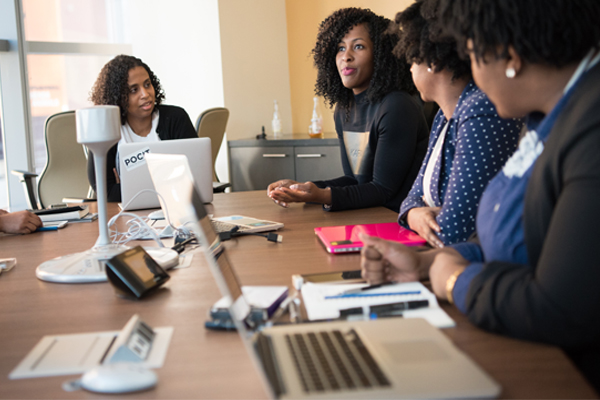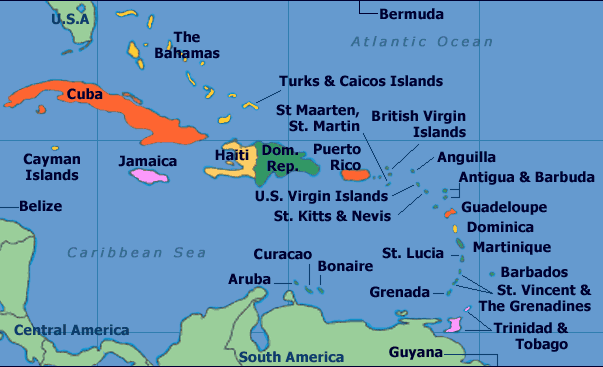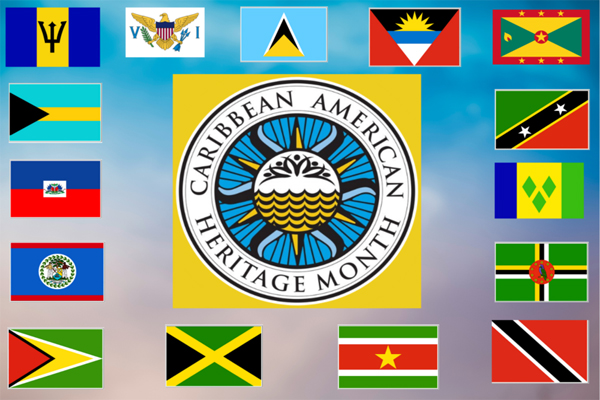Every June, the US celebrates Caribbean-American Heritage Month to honour America’s rich and diverse Caribbean culture.
This month aims to recognise the contributions of all Caribbean-American people; and to teach people more about their culture and history. The 13 Caribbean countries are Antigua and Barbuda; Bahamas; Barbados; Cuba; Dominica; Dominican Republic; Grenada; Haiti; Saint Kitts and Nevis; Jamaica; Saint Lucia; Saint Vincent and the Grenadines; and Trinidad and Tobago.
According to the Institute of Caribbean Studies (ICS), Caribbean immigrants have made a huge contribution to the wellbeing of American society since its founding. They include craftsmen, poets, doctors, inventors; as well as individuals that have added greatly to different professional spheres in the country. Some renowned names include Alexander Hamilton – the first Secretary of Treasury; Celia Cruz for creating astounding salsa music; the famous baseball player Robert Clemente; and several other individuals who managed to leave a mark on US history. Others names worth mentioning include people like Secretary of State Colin Powel; Cicely Tyson; WEB Dubois; James Weldon Johnson; Harry Belafonte and Sidney Poitier.
HISTORY OF CARIBBEAN-AMERICAN HERITAGE MONTH
ICS’ effort for the recognition of a Caribbean American Heritage Month began in 1999 with a petition to President Bill Clinton. The month was eventually founded and celebrated across the nation for the first time by the Institute of Caribbean Studies in 2000, thanks to Dr Claire Nelson; when ICS began leading activities in celebration of June as Caribbean American Heritage Month in Washington DC, building on efforts started by a now defunct ad-hoc group of Washington DC residents to have a Caribbean Heritage Month designated in Washington DC in 1999. However, the move to officially declare June as National Caribbean American Month started in 2004; when a legislative bill was passed by Congresswoman Barbara Lee. The resolution was made official in 2006 when President George W Bush signed the proclamation, naming June as National Caribbean American Month.

During this month people are reminded of the great Caribbean cuisine, their music, and the majestic annual parades of the Caribbean Americans.
CARIBBEAN INFLUENCE IN US
Many years ago, most of Caribbean nations were under direct US political control at some point; which made their immigration into America much easier. The earliest wave of Caribbean nationals came to the US in the 19th century. and were mostly guest workers from the British West Indies programme; who worked in agriculture, as well as political exiles from Cuba. As US companies began recruiting English-speaking workers from former English colonies like Jamaica, migration increased to a great extent. This also saw many more Caribbean people flee political instability and seek refuge in the US.

.
The US is also a trading partner for the Caribbean nations. While immigration increased before the 20th century, it has since declined gradually. Most immigrants are from five countries: Cuba, the Dominican Republic, Jamaica, Haiti, and Trinidad and Tobago.
HOW INDIVIDUALS & COMPANIES CAN GET INVOLVED
Professionals and companies can get involved and celebrate Caribbean-American Heritage Month by:
1. Reading up on the history of Caribbean immigration to the US; and how they have helped drive the American dream and turn it into a reality. You can also visit museums and exhibits to learn more about the history of Caribbean immigration.
2. Cooking Caribbean recipes. Whip up a delicious jerk chicken, Jamaican rum punch, or some coco bread.
3. Each year for Caribbean-American Heritage Month, the Institute of Caribbean Studies works with its partner organisations to devise a varied bunch of activities; to suit people of all ages and genders. Visit their website and check out the events happening online or in your community, or at work.
For more information, click here.







































